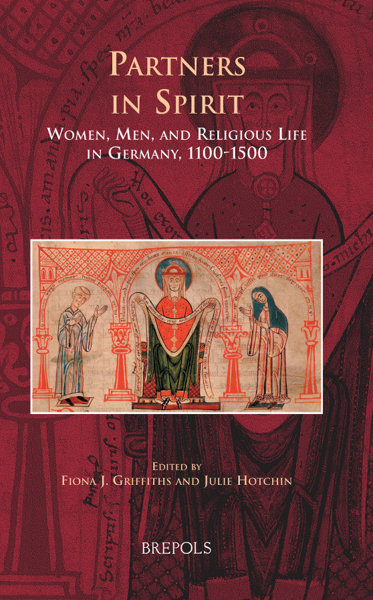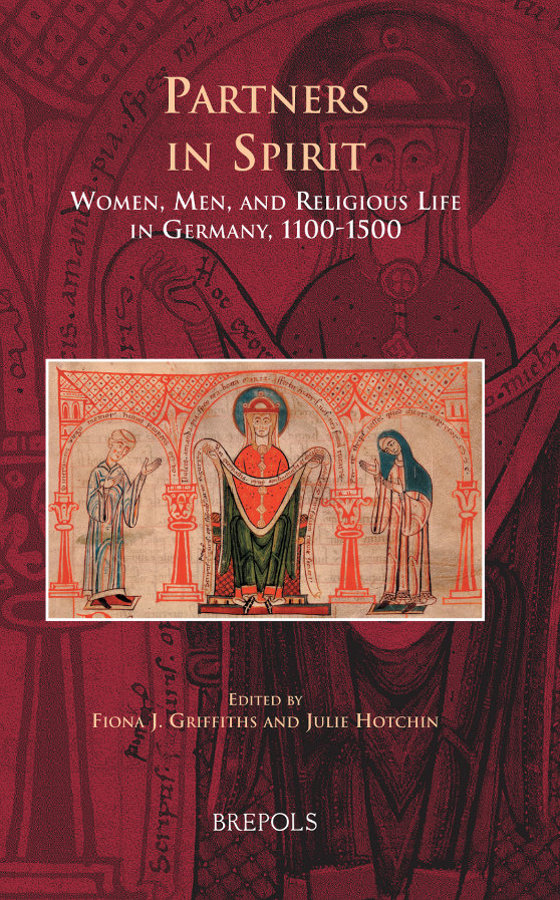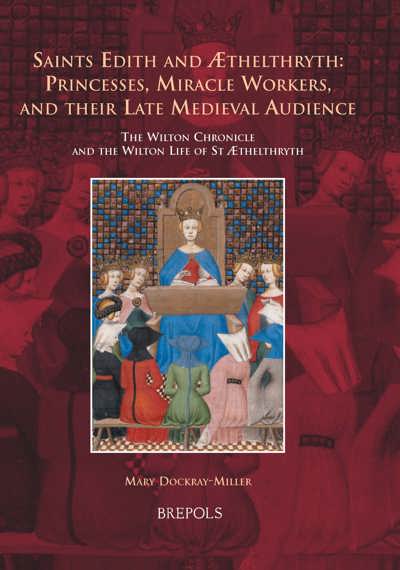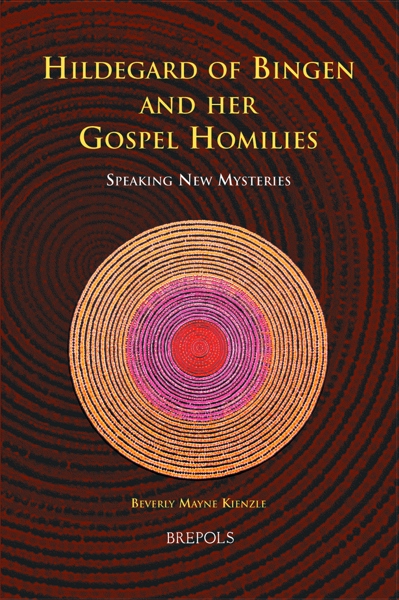
Partners in Spirit
Women, Men, and Religious Life in Germany, 1100-1500
Fiona J. Griffiths, Julie Hotchin (eds)
- Pages: x + 430 p.
- Size:156 x 234 mm
- Illustrations:15 b/w
- Language(s):English
- Publication Year:2014
- € 120,00 EXCL. VAT RETAIL PRICE
- ISBN: 978-2-503-54096-2
- Hardback
- Available
- € 120,00 EXCL. VAT RETAIL PRICE
- ISBN: 978-2-503-54128-0
- E-book
- Available
Partners in Spirit focuses on relations between chaste men and women within the religious life in Germany (ca. 1100-1500), highlighting the fluidity of gender and authority within the medieval religious life.
"(...) as a whole, the collection produces a rich mosaic of local instances of negotiation, cooperation, and variety in modes of pastoral care in western Europe from 1100-1500. Its authors' greatest contribution is to clear historiographic space and point a way forward as they insist on the firm contextualization of gendered representations of religious authority and on their measurement against other categories that shaped the daily experience of communal life." (Sara Ritchey, in: The Medieval Review, 15.02.01)
"This volume will appeal to scholars of gender, religious life, medieval Germany, and mysticism. There is certainly much material that will be of interest to historians concerned with the relationships between established religious orders and women, whether they are religious themselves or members of the pious laity. The volume offers an important intervention in the historiography of gendered religious experience and insight for new avenues of research in English-language scholarship. It is highly recommended." (Samuel Baudinette, in: Parergon, 32.1, 2015, p. 238-240)
"Each essay is thoroughly researched, and rounded off with a detailed bibliography of primary and secondary material. The authors have regularly resorted to archival documents and bring to light many new perspectives that underscore how much fairly intensive communication there was between both women and men of the church on many different levels. Several essays were translated into English. The editors have taken great care in preparing this volume, and have even produced a most welcome index. The book title clearly captures the central theme pursued here, “Partners in Spirit,” which promises to launch new approaches to gender issues in the Middle Ages." (Albrecht Classen, in: H-Net Reviews, 2015, http://www.h-net.org/reviews/showpdf.php?id=44155)
"This volume’s basic premise of looking at the realities of malefemale interactions in medieval contexts rather than normative or literary discourse is not entirely new. (...) Nonetheless, it deserves to be referred to as groundbreaking for being the first work to give centre stage to the need to pursue this approach, and to draw attention to its implications of a paradigm shift." (Steven Vanderputten, in: Francia-Recensio, 2015/3)
"Together, the essays in Partners in Spirit offer a fascinating corrective to a rhetoric of burden often repeated by both medieval and modern writers that assumes that women’s participation in religious life was a “problem” that male clerics gradually solved by subordinating, marginalizing, or even entirely excluding women from individual communities and even from whole orders." (Alison I. Beach, in: American Historical Review, 120.4, October 2015, p. 1539-1540)
"(...) les spécialistes tout comme le grand public se réjouiront de trouver dans ce volume des réponses audacieuses à la question, désormais classique, des relations nouées entre l'Église et les femmes au Moyen Âge. On espère que ce profitable renouvellement historiographique connaîtra la large diffusion qui lui est déjà promise grâce au choix de l'anglais comme langue de publication." (Anne-Laure Méril-Bellini delle Stelle, in: Sehepunkte 14 (2014), Nr. 10 [20.01.2016], http://www.sehepunkte.de/2014/10/25512.html
"The volume offers important suggestions for future research, and it demonstrates how an attentiveness to the possibilities of documents of practice can provide new insights into male-female interactions in medieval Christian religious communities." (Martha G. Newman, in: The Catholic Historical Review 102, 1, 2016, p. 151-153)
"Insgesamt vermittelt der Band einen facettenreichen Eindruck vom Wirken der Männer in religiösen Lebenssphäre, von Frauen." (Katharina Ulrike Mersch, in: Historische Zeitschrift 302, 2016, p. 185-186)
"Alles in allem ist ein sehr interessanter Band entstanden, der das Agieren von Nonnen, Beginen, Kanonissen mit ihren männlichen Partnern in ein neues Licht stellt und hoffentlich die wissenschaftliche Auseinandersetzung im Bereich der mittelalterlichen religiösen Frauengemeinschaften voranbringen wird." (Helmut Flachenecker, in Zeitschrift für Historische Forschung 43, 2016, p. 102-103)
“This collection as a whole is free from the rigid thinking that characterizes much scholarship on religious women (…) the detailed and thoughtful study by Shelley Amiste Wolbrink of the Premonstratensian abbeys of Füssenich and Meer in the twelfth and thirteenth centuries works out from the evidence in an exemplary fashion to open a thoroughly refreshing perspective on gender relations in monastic communities.” (Stephen Mossman, in Renaissance Quarterly, 69/3, 2016, p. 1037-1038)
“The essays in this volume come without exception from the pens of experts. Most are based on the authors’ extensive study of the sources over many years. This accounts for the high quality of the articles. (…) For this we are greatly indebted to the editors!” (Hedwig Röckelein, in the German Historical Institute London Bulletin, 38/2, 2016, p. 81)
"Bemerkenswert ist an dem Sammelband nicht nur die klar fokussierte Themenstellung, sondern auch die Kooperation von deutscher Landeshistorie mit amerikanischer Germanistik." (Letha Böhringer, in: Deutsches Archiv für Erforschung des Mittelalters, Band 72-1, 2016, p. 340-341)
Partners in Spirit focuses on relations between chaste men and women within religious life in Germany (c. 1100-1500), concentrating on the complex set of negotiations that governed contact between a male priest and his female charge. Although religious women were undeniably reliant on priests for pastoral care (the cura monialium) throughout the medieval period, it does not follow that men saw such care as burdensome or that women were spiritually subordinate in their relations with priests. Within the context of the cura, ordained men and professed women met regularly, often developing intimate friendships and providing each other with crucial spiritual support, despite prevailing fears that contact between the sexes must result in sexual temptation and sin.
Examining the various interactions of priests with religious women, Partners in Spirit traces the ways in which both viewed the cura, highlighting the fluidity of gender and authority within the medieval religious life. In so doing, the volume suggests new ways of considering the intersection of gender, religion, and spiritual power within the medieval world.
Women and Men in the Medieval Religious Landscape — FIONA J. GRIFFITHS AND JULIE HOTCHIN
Double Monasteries in the Southwestern Empire (1100-1230) and their Women’s Communities in Swiss Regions — ELSANNE GILOMEN-SCHENKEL
Double Monasteries in Images?: Observations on Book Illumination from Women’s Communities in the Southwestern Empire - SUSAN MARTI
The ‘Freedom of their Own Rule’ and the Role of the Provost in Women’s Monasteries of the Twelfth and Thirteenth Centuries — EVA SCHLOTHEUBER
Monks and Nuns at Rupertsberg: Guibert of Gembloux and Hildegard of Bingen — FIONA J. GRIFFITHS
Necessary Priests and Brothers: Male-Female Cooperation in the Premonstratensian Women’s Monasteries of Füssenich and Meer, 1140-1260 — SHELLEY AMISTE WOLBRINK
Brothers and Sisters in Christ, Brothers and Sisters Indeed: Two Thirteenth-Century Letters of Thomas, Cantor of Villers, to his Sister Alice, Nun of Parc-les-Dames — ANTHONY RAY
Geistliche Schwestern: The Pastoral Care of Lay Religious Women in Medieval Würzburg — JENNIFER KOLPACOFF DEANE
Henry of Louvain: Dominican, Visionary, and Spiritual Leader of Beguines — WYBREN SCHEEPSMA
Pastors and Seducers: The Practice of the Cura monialium in Mendicant Convents in Strasbourg — SIGRID HIRBODIAN
Women Teaching Men in the Medieval Devotional Imagination — SARA S. POOR
Negotiating Autonomy: Canons in Late Medieval Frauenstifte — SABINE KLAPP
Afterword: Ordinary Life and the Gendered Imagination — JOHN W. COAKLEY




